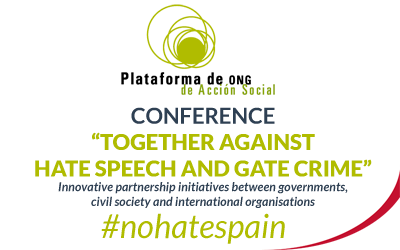Discussion topics
Panel of experiences 1 – Assistance to victims of hate crimes: involving and empowering the community
Most governments have a legal criminal framework to combat hate crimes. However, many European and international reports highlight a worrying trend of underreporting, one of the reasons being that victims often lack confidence and trust in public authorities. In the past years, many civil society organisations and NGOs have lead initiatives aimed at tackling underreporting by supporting and empowering victims and their communities. How can public authorities and civil society organisations/NGOs work together to involve and empower victims to report hate crimes and protect them?
Panel of experiences 2 – Combating on-line hate speech: the contribution of international organisations and civil society/NGOs
On-line hate speech is a growing phenomenon which has been fuelled by the new communication technologies and social media; therefore, spreading hate speech has become easier and quicker than ever before. Freedom of expression is a fundamental human right; however, it is not an absolute right; it carries with it certain duties and must be exercised responsibly.
Many governments are putting into place measures to combat on-line hate speech. The international organisations and civil society/NGOs have an important role to play in this regard.
How can public authorities, international organisations and civil society/NGOs work more closely to combat on-line hate speech? How can they create synergies to be more effective?
Panel of experiences 3 – Identifying and compiling information on hate crimes: the contribution of international organisations and civil society/NGOs
Most governments compile and produce regular reports on hate crimes based on official criminal statistics, official claims and judicial processes. However, official information does not always reflect the real extent of the problem. Many international organisations and civil society organisations/NGOs have led initiatives aimed at compiling information on hate crimes. This information can be useful to public authorities as it can identify current problems, complement the official information and can serve as contrast, etc.
How can international organisations and civil society/NGOs better contribute to the identification and compilation of hate crimes? How can public authorities better use the information compiled by international organisations and civil society/NGOs?










